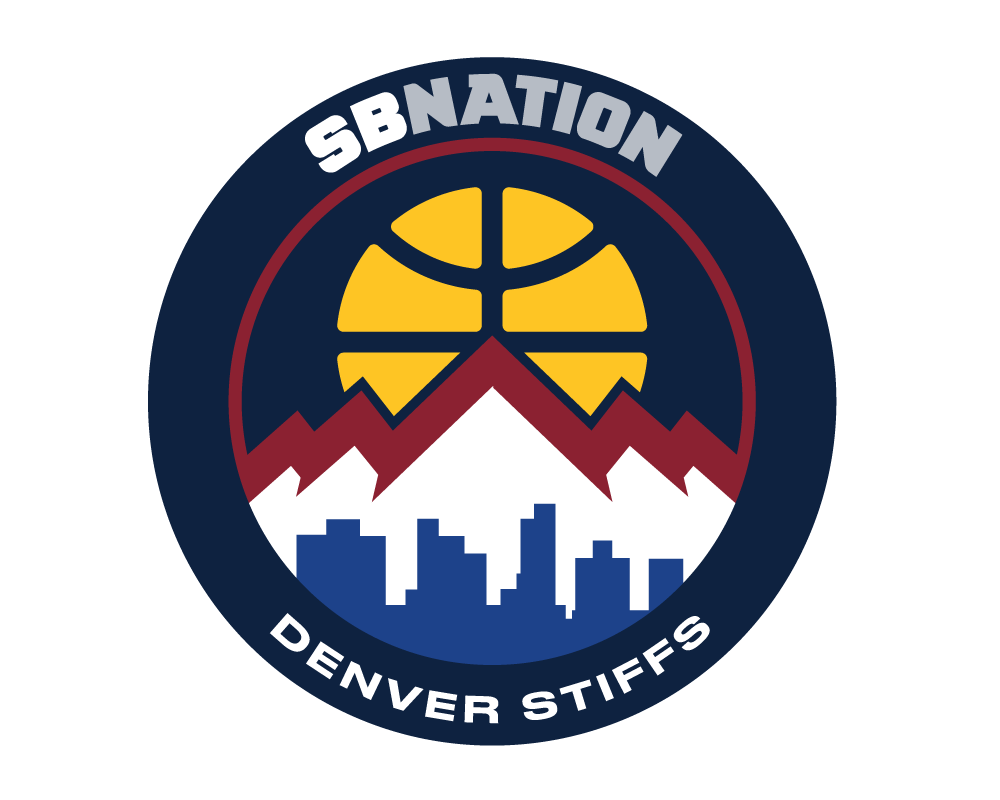This is directly from ESPN Insider, I think it speaks volumes of how we feel about the refs
As the Denver Nuggets prepare to tip off Game 5 Wednesday in their playoff series against the Utah Jazz, one of the big questions that must be asked regarding the Nuggets is this: What happened to their formerly reliable free throw advantage?
Denver led the league in free throw attempts and the Jazz fouled more than any other team in the NBA this season, so we might have expected a Nuggets parade to the line. Yet through four games it's Utah that enjoys a plus-13 advantage in free throw attempts.
What gives? Well, there appears to be more to the story, one that's been developing since interim coach Adrian Dantley replaced coach George Karl on the sideline. As our Chris Broussard pointed out earlier in the week, the Nuggets are getting fewer foul calls under their interim coach than they did under Karl. Denver went to the line 31.6 times per game under Karl but just 27.2 in the 19 regular-season games the Nuggets played under Dantley. In those games, Denver's plus-315 free throw edge under Karl transformed into a minus-14 deficit under Dantley.
In 61 games with Karl on the sideline this season, Denver averaged .392 free throw attempts per field goal attempt. That figure not only led the league by a wide margin but was also one of the best figures in recent NBA history.
With Dantley, that figure dropped all the way to .323, which was just slightly above the league average and the ninth-best figure in the league. (Note: To compare like pieces of fruit here, all Dantley data is regular season only.)
We're talking about a whopping 17.6 percent difference in free throw attempts per field goal attempt, and we're talking about a large-enough sample size -- 19 games, or nearly one-quarter of a season -- that it can't be dismissed as a short-term fluke.
My search for obvious explanations turned up little. Denver played eight times at home and 11 on the road, but it also played several weak defensive teams under Dantley -- including each of the bottom four in defensive efficiency.
Injuries was my next thought, as it might mean that players less likely to draw fouls were on the floor. But the only regular to miss significant time, forward Kenyon Martin, doesn't draw fouls at a high rate. In fact, he gets to the line dramatically less often than his most frequent replacement, Chris Andersen, and roughly as frequently as the two other players (Joey Graham and Johan Petro) who filled in for him. If anything, Martin's absence should have helped on that front.
One might think that the Nuggets attempted different shots, and that would account for the free throw disparity, but they really didn't. Denver attempted 1.9 percent fewer shots in the basket area under Dantley than under Karl. It's hard to imagine how that explains 17.7 percent fewer free throw attempts per field goal attempt.
Finally, you might think, maybe it's just one of those things -- an unusually huge random variation, but a random one nonetheless. Still, every other metric supports the hypothesis that Dantley is the Rodney Dangerfield of coaches.
As for opponents' free throw attempts? No respect. While Dantley coached, the Nuggets' opposition took 5.5 percent more free throw attempts per field goal attempt than it did while Karl coached.
Opponents' foul calls? No respect. While Dantley ran the Nuggets, their opponents received 3.9 percent fewer fouls per possession than they did while the Nuggets were under Karl. That had a double-whammy effect, as it meant less opponent foul trouble -- a key weapon in Denver's arsenal -- and fewer forays for Denver into the bonus.
Foul calls? No respect. Denver got called for 1.7 percent more fouls under Dantley on a per-possession basis, which isn't a huge increase but is a rise. And as with the opponents' fouls above, it had knock-on effects with foul trouble and the bonus.
In other words, it's not just one piece of data that supports the hypothesis; it's every piece. Everything you expected to happen if Dantley wasn't getting a fair whistle has happened.
At this point, somebody from the league might point out that the Nuggets have averaged a very healthy .441 free throw attempts per field goal attempt in their series against Utah, then say that we're all overreacting or that the postseason doesn't support the conclusions above.
Which would make sense, except for two things:
First, Denver's opponent, Utah, is the capital of Hackerville. Jazz opponents averaged a league-leading .353 free throw attempts per field goal attempt during the regular season, or 17.7 percent more than the league average. (There's that number again.) Given those parameters, the jump in Denver's rate over such a small sample seems unremarkable.
And second, have you seen Utah's free throw attempts? I think the Jazz just went to the line again while I was typing that last sentence. Utah has taken 152 in just four games for an ungodly .501 free throw attempts per field goal attempt. To put that number into perspective, only 20 players in the entire league had a rate so high this season, and none of them played for Utah.
It's unthinkable for an entire team to get to the stripe at such a prodigious rate for a series; even in a short series, it's a dramatic deviation from the norm. Utah and Denver both were above the league norm in earning and allowing free throws, respectively, but they weren't nearly as divergent from the averages as they were at the other side of the court. In other words, we'd have expected Utah's free throw rate to stay close to normal.
I must point out that this data does not prove beyond a shadow of a doubt that the refs have been treating Dantley and the Nuggets unfairly. We could come up with other hypothetical explanations for the data noted above. And since it's likely that this information will reach the refs before Game 5, we might expect this data to become more normal in future games.
Regardless, we have enough evidence now -- from 82 regular-season games and four playoff games -- to started asking pointed questions.
NBA referees are human, and in general that's a really good thing. Being human allows them to make subtle judgments about intent and impact, recognize potentially explosive on-court situations, and maintain law and order in countless other ways.
The disadvantage, however, is that it renders them vulnerable to all our little human biases and tendencies. One prominent one has already received notice thanks to a research paper by economists by Justin Wolfers and Joe Price, that league officials tend to show a same-race bias. (More on that study can be found here.)
It's possible there's an "interim-coach phenomenon" as well, especially if it's an interim coach who never argues calls.
Given the eye-popping differentials in foul calls and free throw attempts, we have to ask if human nature has made some officials respond different to Dantley than to a more intimidating, permanent coach like Jerry Sloan. Are the refs more likely to call, say, three charging fouls in a half on a team's superstar, or call a delay-of-game violation for a technical foul with three minutes left in a close playoff game, or make a dramatic zip-your-lips gesture to the bench as if lecturing a room full of third-graders if the person reacting to that call is basically the substitute teacher?
They're the best officials in the world. But they're only human, after all.



